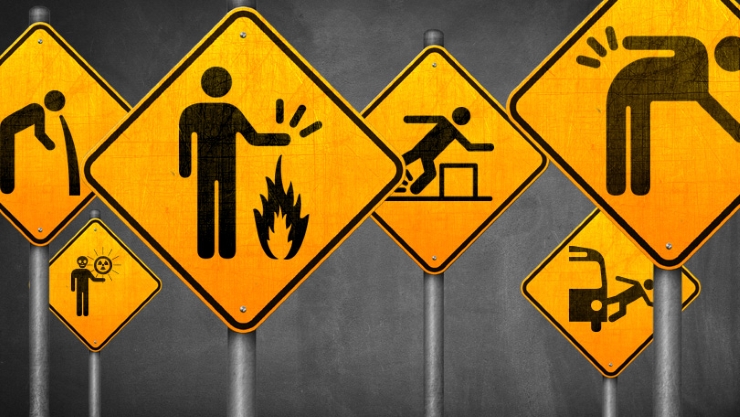If you’re the owner or manager of a South Carolina business, you are almost certainly aware of the financial exposure involved when an employee files a workers’ compensation claims for injuries suffered on the job.
On-the-job injury can obviously cause lost production time and great concern over the health and well-being of your employee. But, your exposure to legal claims may extend beyond a simple a workers’ compensation claim. It behooves wise business managers to carefully evaluate potential hidden pitfalls for additional financial and legal exposure to their businesses.
As an attorney defending manufacturers and other businesses, I have had clients come to me in great frustration when they have been sued, not by their injured employee, but by their machinery or tool supplier – a third party they had never even considered as a threat to their business.
I recently represented a South Carolina manufacturer whose temporary employee had been injured while operating machinery supplied by another vendor. As might be expected, the employee filed for and received workers’ compensation, so the employer was prepared to consider the matter closed.
However, as is often the case, the injured employee went a step further than claiming workers’ compensation; he sued the machine supplier, claiming that the machine was defective and unreasonably dangerous, and that the machine supplier’s negligence caused his injury.
In response, the machine supplier drew the employer business back into the lawsuit by claiming they were liable to the machine supplier for the injury because, they claimed, the employer modified the machine and did not follow the machine supplier guidelines for use.
Fortunately, our firm, Murphy & Grantland, P.A., was able to defeat the attempt to put the employer on the hook for the employee’s injury. We successfully filed a motion to dismiss the suit, arguing that once workers’ compensation claims had been satisfied, the business was immune from liability, due to the exclusivity provision in the South Carolina Workers’ Compensation Act, and the fact that the employer had no contractual agreement to indemnify the machine supplier.
Our client’s story ends well, but not all do. The client discovered that faithfully maintaining workers’ compensation coverage for their employees had the added benefit of providing an umbrella of legal protection for this type of claim.
This case, however, illustrates how essential it is that manufacturing business owners in South Carolina fully understand that third parties, such as manufacturers of your equipment, vendors and/or other sub-contractors to your business, may also draw you into lawsuits involving your employees and customers. It’s important to take time to consider the breadth and depth of your potential exposure so that you can wisely protect yourself.
Here are some tips for protecting your business from over-exposure to potential third-party legal claims involving employee injuries:
- Conduct regular independent safety audits, maintain records of those audits and the steps taken to rectify any issues which the audit may have identified.
- Regularly maintain machinery and equipment to ensure that it is in safe, working condition, and keep very detailed records of those maintenance efforts.
- Conduct thorough workplace safety training sessions with employees and document those training sessions.
- Do not allow unqualified employees to “repair” or otherwise alter the operation of any equipment.
- Take unsafe or damaged equipment or machinery out of service until it is completely repaired by qualified personnel.
- Thoroughly review all contracts with your machinery and tool suppliers to identify areas of potential legal exposure.
- Thoroughly review all temporary labor contracts to ensure your business is not exposed to excessive legal claims.
- Make sure that all of your workers – both permanent and temporary – are adequately protected by workers’ compensation.
The steps you take today to limit your business from legal exposure will serve to not only protect your employees and their jobs, but also that which should be of equally great importance to both you and your employees – that is, your company’s “bottom-line.”
 About the Author:
About the Author:
Ray Moore is a shareholder with Murphy Grantland, P.A., a law firm headquartered in Columbia and dedicated to the defense of South Carolina businesses. Ray focuses his practice on products liability and professional liability defense, and has represented insurers and businesses in both state and federal courts.
This article is not intended to be the offering or provision of legal advice. Seek legal advice from a licensed attorney for your specific business legal needs.


Be the first to comment on "Eight ways to protect your business from workplace injury litigation"